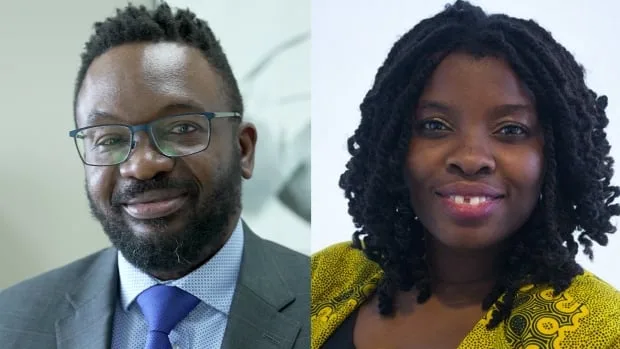
A provincial association representing Black physicians is launching a remote hub in London, where doctors and medical students can connect and discuss important issues impacting the community along with ways to improve health care for Black patients.
Black Physicians Association of Ontario (BPAO) serves almost 400 doctors in different stages of their careers, and works with community organizations and non-profits to build better health outcomes for Black Ontarians.
A key priority of the hubs is to bridge gaps between Black patients and the health-care system by working with physicians from their communities who understand their unique needs, said executive director Chenai Kadungure.
“Our membership is full of people who are proactive leaders,” she said. “The challenges they had to face when becoming physicians inspired them to try and positively impact the environment as much as possible for those coming after them.”
The hubs will allow members to provide peer support, mentor students, and identify areas within health care that can be more inclusive of racialized patients, along with other initiatives.
The Toronto-based organization has a growing pool of doctors across the province and is expanding that support network for those outside the area to share their insights and experiences, organize social events and collaborate on community projects, said Kadungure.
“A lot of these places have had an influx of immigrants and refugees, but they haven’t been able to create that culturally appropriate care to respond to the need. We want that close-knit community we have in Toronto to exist in every other community,” she said.
A ‘shared identity’ in underrepresented doctors
London is the third city the program has expanded to after Ottawa and Sudbury. BPAO also plans to launch hubs in Hamilton and Kingston later this year.
Black physicians are underrepresented among doctors in London, and having a concrete support system through shared identity is crucial to maintaining morale, said Dr. Jedrin Ngungu, a psychiatrist at London Health Sciences Centre, and one of the new hubs’ leads.
“I quickly signed up to team up with others like me so we can share experiences and learn from one another, offer each other support, and see what we can do, not only for the Black community, but patients at large,” Ngungu said.
“We need that support from each other. We have this shared identity and may have similar experiences, which are also important for doctors who are just starting their practices.”
BPAO also wants to increase testing for sickle cell disease — which specifically impacts Black communities — and screening for cancer and other illnesses like kidney disease, hypertension, diabetes, and obesity, which Kadungure calls “core chronic conditions that can lead to other worse diseases.”
Bridging gaps, mistrust in health care
Some areas of challenges within the community include mental health and medical screenings, and a general mistrust of the system overall, Kadungure said.
“The community needs to feel that a place is culturally safe, so we’re trying to get as many Black physicians working to support the community as possible. A really small intervention can make a big difference for some communities that are affected,” she said.
Rebuilding patient trust is an important starting point for Black physicians to make necessary strides in health care, Ngungu said.
“For some, rebuilding trust is seeing a doctor who looks like them,” he said. “The unique needs may not be as obvious to people from other backgrounds, so it’s important for us as Black physicians to identify them and contribute.”
BPAO is hosting an inaugural event Wednesday evening to provide outreach to potential members and learn about issues unique to London, with a focus on how positive changes can be made. The event starts at 6 p.m. at the Idlewyd Inn and Spa on Grand Avenue.

